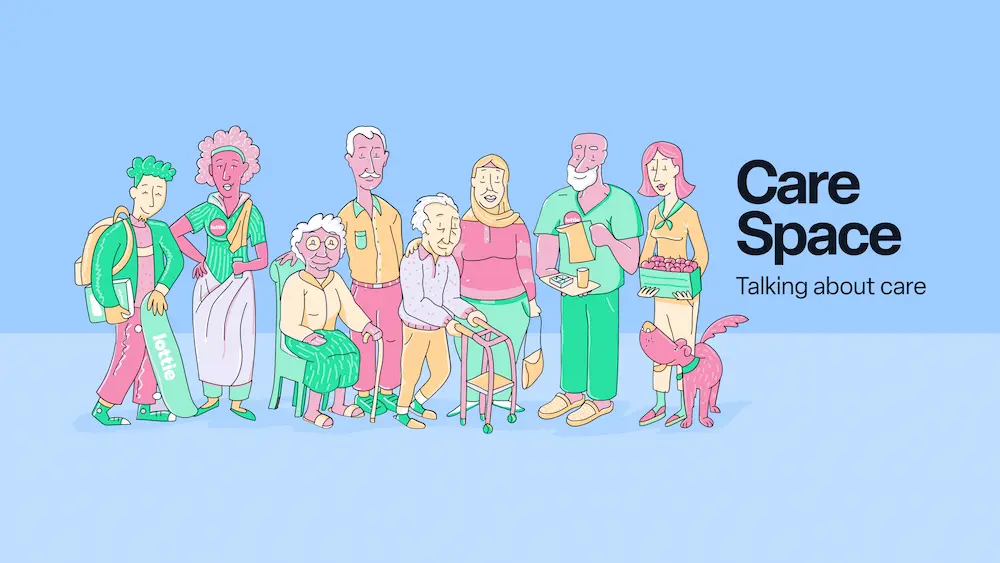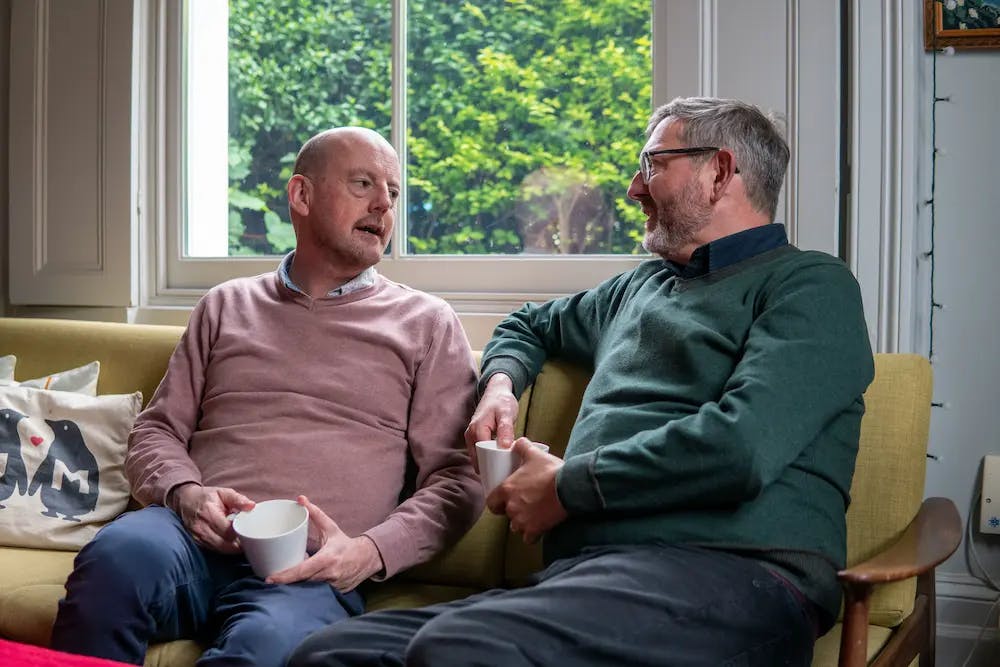World Alzheimer’s Month | The Five Biggest Alzheimer’s Myths

Estimated Reading Time: 5 minutes
As we enter this year’s World Alzheimer’s Month 2023, our new research has revealed the biggest misconceptions about caring for someone with Alzheimer’s. Stereotypes and Alzheimer’s myths can have harmful effects on both those living with this condition and their caregivers, including communication barriers, isolation, and increased stress.
Need to find dementia care fast?
Browse the best dementia care homes for your loved one.
Here Are The Five Biggest Alzheimer’s Myths
Myth one: People with Alzheimer’s don’t remember anything
Although memory loss is a common symptom of Alzheimer’s, your loved one can still remember events from their past and experience lots of moments of clarity and recognition.
However, if you’re caring for someone with Alzheimer’s, you should avoid asking them if they remember things. Instead, you should talk more openly about the past and lead the conversation. A more suitable and calm approach would be to say ‘I remember when…’, as this will ease them into an open conversation that they can join in if they feel comfortable.
Myth two: It’s appropriate to describe those with Alzheimer’s as ‘suffering’
The way we communicate and talk about Alzheimer’s has a direct effect on how people living with this condition feel. Using phrases like ‘suffering from Alzheimer’s’ or ‘a victim of dementia’ is negative and can have a profound impact on the person with Alzheimer’s, along with their loved ones.
Instead, use respectful language to show that Alzheimer’s doesn’t need to be a life-defining condition. For example, try saying ‘a person with Alzheimer’s’ or ‘living with dementia’.
Myth three: You can’t engage in any fun or meaningful activities
Often, the best part of your loved one’s day is spending time with you. The positive emotions evoked from relaxing and having fun together can shape the rest of their day and leave them in a great mood.
The quality time you spend with your loved one has more of a lasting effect than you think and can influence how they feel, and even how they eat.
From playing familiar music to exploring arts and crafts together, there’s something to try for everyone. Remember, even if it’s a slower pace than what you’re used to, you’re still making meaningful memories together.
We’re here to help you find the right dementia care home for you or your loved one. You can request a free list of dementia care homes from our care experts, who will then share homes matching your budget and location. You can also search for a dementia care home through our easy-to-use directory.
Myth four: Alzheimer’s caregiving doesn’t affect the carer
Caregivers play an invaluable role in looking after someone with Alzheimer’s, and it’s so important to recognise the incredible support they give every day.
Caring for someone with Alzheimer’s can be very rewarding, but it may also be challenging. It’s understandable to feel frustrated and even angry sometimes. For instance, you may feel overwhelmed if things are happening outside of your control.
Watch out for signs of frustration, such as if you have shortness of breath, chest pains or you’re experiencing a lack of patience. If this happens, take yourself away from the stressful situation and try some relaxation techniques, including mindfulness or heading outdoors for a quick walk. Always be proud of yourself for how much support you’re giving to a loved one too.
There are lots of dementia support groups, both online and local to your area, including Care Space; a completely free, online care support group.
Myth five: You have to talk differently to somebody with Alzheimer’s
Although no harm is intended, sometimes you may find that you speak differently to your loved one who has Alzheimer’s. Speaking in a child-like tone can come across as patronising and demeaning and may leave your loved one feeling irritated, overwhelmed, or anxious.
Remember that your loved one deserves dignity and respect. Every person’s experience of Alzheimer’s is unique, so make sure they feel as comfortable as possible. Communicate clearly and calmly, use simple sentences and take the time to listen to their response.
More People Are Searching For Alzheimer’s Support
Online searches have surged for Alzheimer’s support groups over the last 12 months across the UK, with more people seeking online and in-person support for Alzheimer’s care too:
- 400% increase in online searches for ‘Alzheimer’s carers’
- 67% increase in online searches for ‘Alzheimer’s family support’
- 23% increase in online searches for ‘Alzheimer’s support’
Whilst searches have continued to increase for support groups, so have mental health worries and concerns from carers. Over the last 12 months, there’s been a huge 875% increase in online searches for ‘feeling trapped caring for an elderly parent’ and a 300% increase for ‘parent carer burnout’.

If you’re looking for some extra Alzheimer’s-related help and advice, Care Space is a free, online support group for care seekers and carers alike.
Why Is Alzheimer’s Awareness Important?
It’s so important to dispel the biggest Alzheimer’s myths and stereotypes about living with this form of dementia and caring for those with the condition.
Incorrect assumptions can lead to those with Alzheimer’s having their self-esteem and sense of identity impacted. These same assumptions may cause somebody with Alzheimer’s to limit their engagement in activities, affecting their quality of life.
These stereotypes can also impact caregivers. Carers may experience increased stress levels and find it tougher to cope with the requirements of caregiving.
We’re on a mission to support individuals and their loved ones throughout each stage of their later living journey. For more information, check out everything Lottie has to offer.



